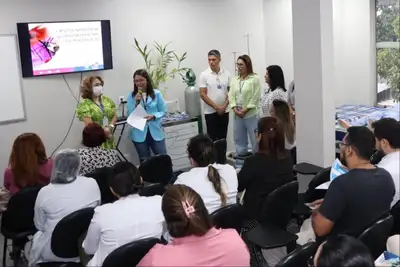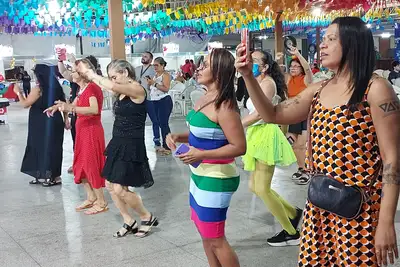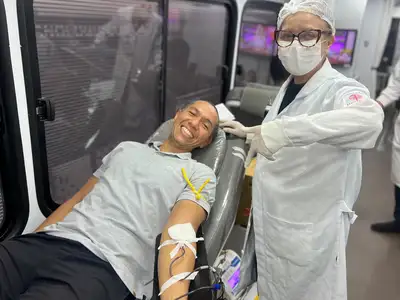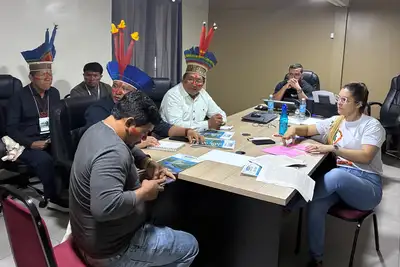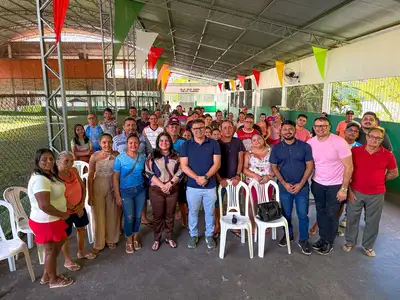Emergency Room Dr. Roberto Macedo enhances quality of life with palliative care
The service ensures integrated action, guaranteeing appropriate symptom management and support for families in more complex situations
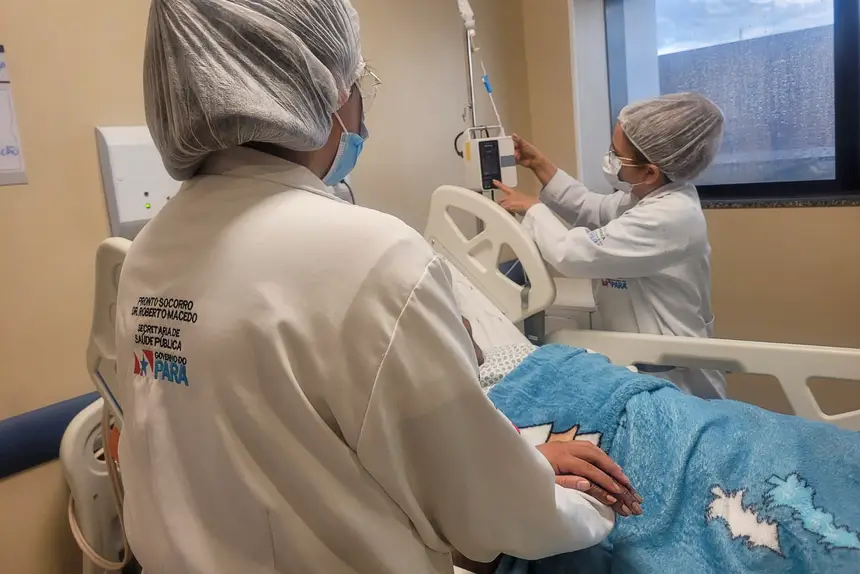
The Emergency Room Dr. Roberto Macedo (PSRM), delivered by the government of Pará in May 2024, has been contributing to expand and qualify health assistance for the population. An example of this is the series of training sessions provided to the multidisciplinary team professionals since last year, to equip them for assistance in palliative care, a health approach that allows for improved quality of life for patients facing serious, chronic illnesses, or who are already in the process of nearing the end of life.
In 2024, the Ministry of Health launched the National Policy for Palliative Care within the Unified Health System (SUS), and in Belém, the Roberto Macedo (PSRM) has been working on the topic for almost a year. This August, PSRM promoted a series of online training sessions led by the hospital's medical coordination. Leading the initiative was the specialist in internal medicine and palliative care, Fernando Viégas. The initiative aims to enhance health care for patients and families facing situations that threaten or limit the continuity of life.
The service ensures benefits for different patient profiles
Fernando Viégas emphasizes that the goal of the training is to address the subject in a systematic, evidence-based manner, to offer benefits to various patient profiles experiencing severe illness conditions.
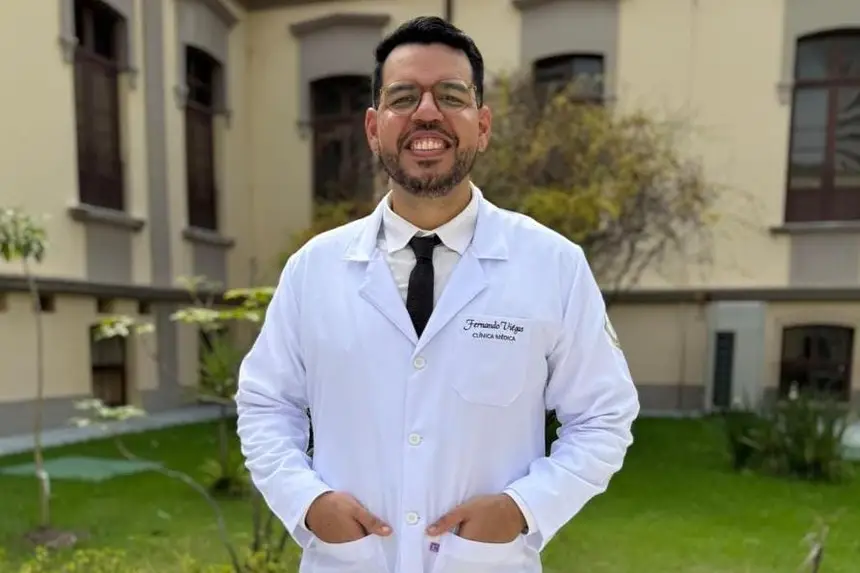
“We want to train PSRM professionals to adopt a palliative approach in their case management from the moment of diagnosis, thus allowing for the development of a therapeutic plan that offers better quality of life and is more aligned with the values and beliefs of the patients,” explains the doctor.
He points out that the training sessions, which continue this August, aim to provide practical tools for assessment and decision-making that are more in line with the values and wishes of the patient, as well as their disease stage and functional status, thus avoiding the adoption of measures that are disproportionate or potentially inappropriate for their health condition.
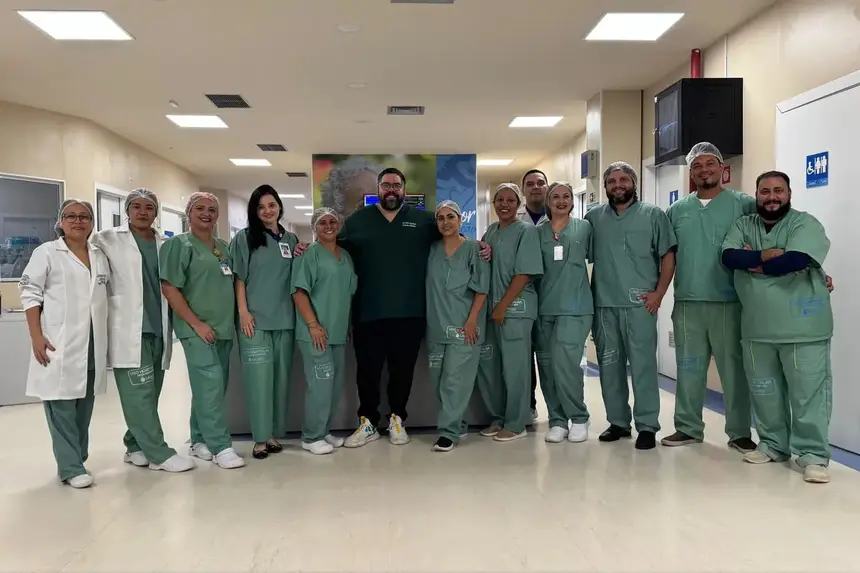
Ethical principles and therapeutic decisions
Elder Nylander, a daily physician in the Adult ICU, one of the professionals trained this week, emphasizes that the initiative is essential for doctors and multidisciplinary teams working in the ICU to align therapeutic decisions with ethical principles and the individual needs of patients, especially in terminal situations.
"This preparation enhances communication with families in moments of high complexity, ensuring clear information, reducing conflicts, and providing emotional support. Furthermore, it promotes a more humanized approach, ensuring comfort and dignity for the patient while avoiding disproportionate treatments. For the team, the training strengthens integrated work, improves care quality, and provides tools to deal with the emotional strain of the intensive care environment," emphasizes the intensivist.
"Integrating palliative care into routine care is a way to ensure person-centered care, aligned with best practices and guidelines, reflecting a commitment to quality of life even in the most critical situations," adds the general director of PSRM, Carlos Vinícius Ribeiro.
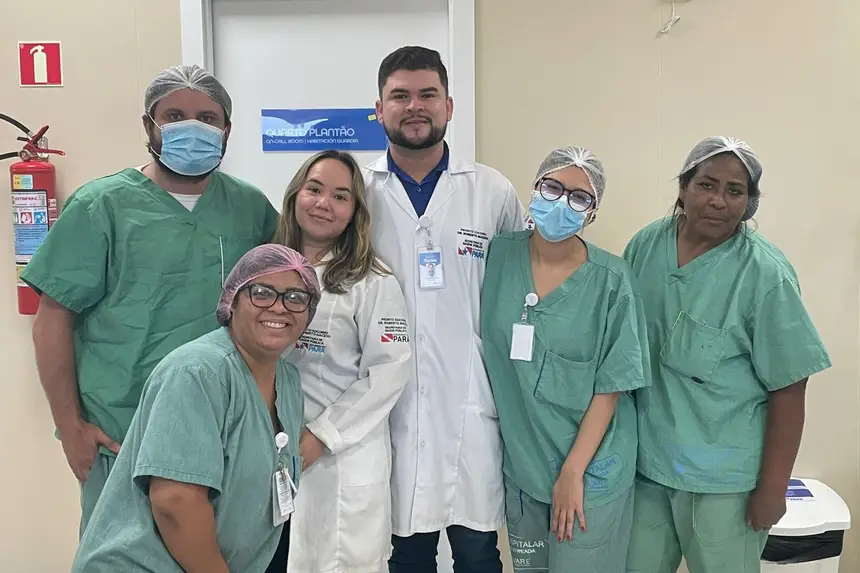
Pioneering in palliative care
The state Emergency Room has ensured and seeks to enhance humanized assistance with palliative care. The service focuses on pain relief, symptom control, and emotional support. In this context, aiming for a more dignified and comfortable experience for patients, families, and caregivers, PRSM invests in knowledge and practices in this type of assistance.
The multiprofessional teams, emphasizes specialist Fernando Viégas, work with this type of health assistance, which is not limited to the end of life, as it can be applied at any stage of the disease to enhance the well-being and dignity of the patient.
“For professionals, the training offers greater respect for their system of values, beliefs, and wishes, as well as ensuring they have more appropriate symptom control, in addition to an optimized therapeutic plan for the patient, allowing them to cope with both the consequences arising from their illness and the modifying treatment, which often causes symptoms as intense or more intense than the underlying disease. For families, the training seeks to provide tools for greater inclusion in the care plan, as well as greater support for the impacts caused by the illness of a loved one,” adds Viégas.
'I consider PSRM's initiative exemplary,' says patient’s family member
Kennedy Leal accompanies his grandmother, patient Maria Benedita da Conceição Leal, 103 years old, a resident of the Icoaraci district, and highlights the work of the multiprofessional team. "I consider the Emergency Room's initiative to train and invest in the knowledge of professionals to work with their patients who need palliative care, both to prepare the family and the patient, who will receive humanized care, sensitive to their needs not only related to the illness but also to the feelings that arise with emotional fragility, especially when the delicate information arrives that the cure for diseases or continuity of life will not be possible for as long as family members and patients would like, and that now only palliative care remains," comments grandson Kennedy Leal.
He added: "The doctors, nurses, psychologists, and all other professionals involved in my grandmother's care provided all the necessary support, with great empathy, being transparent with us, talking with the family and with our patient, who is aware and conscious of her situation, and is satisfied with the care,"
Dona Maria Benedita Leal, who has just been discharged, was hospitalized for over a month in the Adult Hospitalization Unit. The Intensive Care Unit receives patients for palliative care.
For the sector coordinator, Renan Aviz, palliative care is configured as essential assistance, involving various professionals, including doctors, nurses, technicians, physiotherapists, psychologists, social workers, speech therapists, nutritionists, pharmacists, and even spiritual support.
“The specific type of palliative assistance goes beyond technique and involves clear communication, symptom management, and decisions aligned with the patient's values. Without preparation, there is a risk of prolonging suffering; with preparation, we ensure humanized, safe, and dignified care,” reinforces the nurse.
"With the training of the multiprofessional team in palliative care, PSRM strengthens its capacity to offer complete and qualified care. The initiative ensures that professionals act in an integrated manner, guaranteeing appropriate symptom management, effective communication, and support for families in more complex situations. This investment enhances the service's resolution capacity and reinforces the hospital's commitment to quality assistance, centered on the real needs of patients and the population,” concludes the technical director of PSRM, Fábio Sampaio.
Service:
Belonging to the network of hospitals of the Government of Pará, the Emergency Room Dr. Roberto Macedo (PSRM) operates on a 24-hour shift basis for urgent and emergency care. The unit is a state reference in general, pediatric, vascular, and thoracic surgery.
The state PS is located at Avenida Augusto Montenegro, s/n, in the Parque Verde neighborhood, and is managed by the Instituto Acqua, in partnership with the State Department of Public Health (Sespa).



